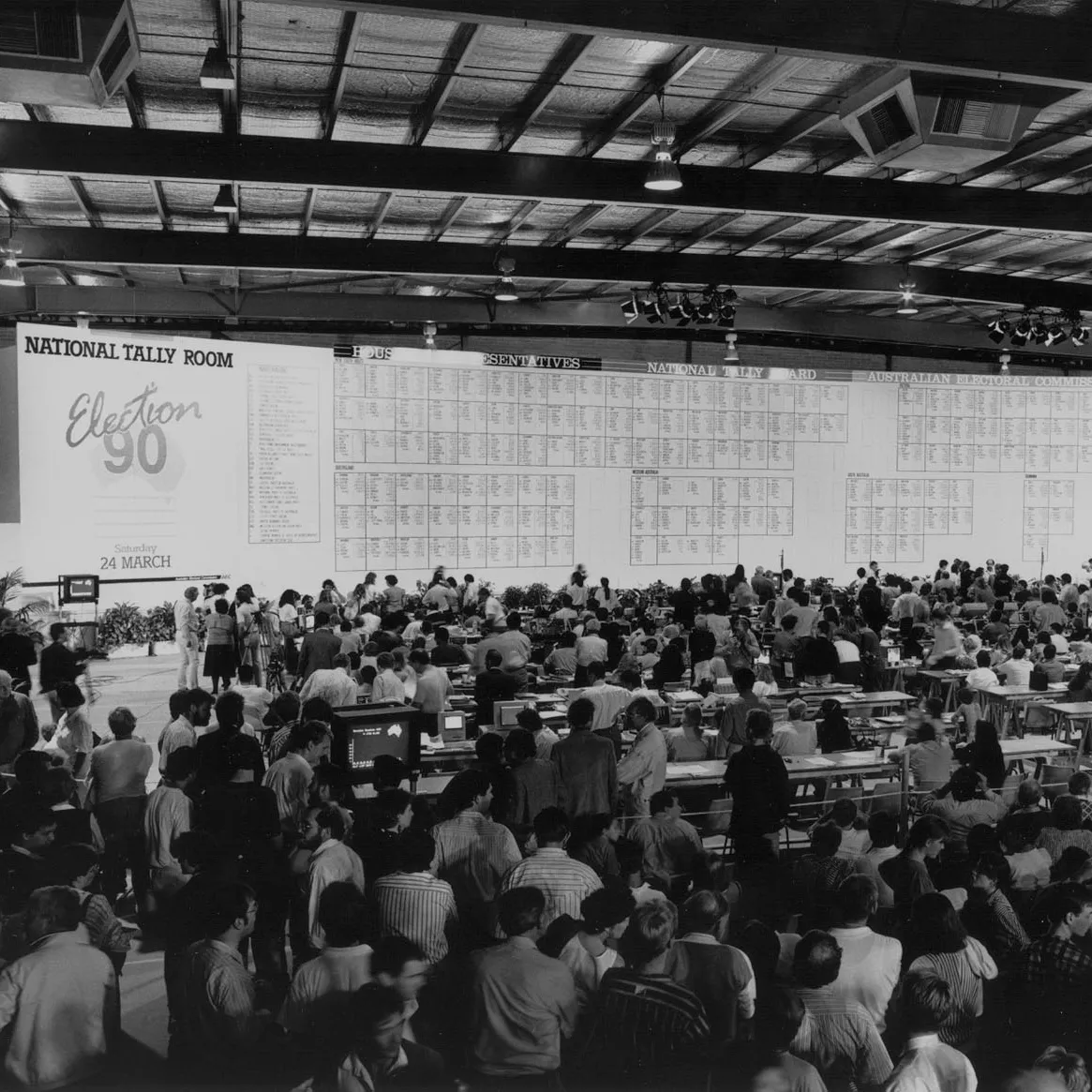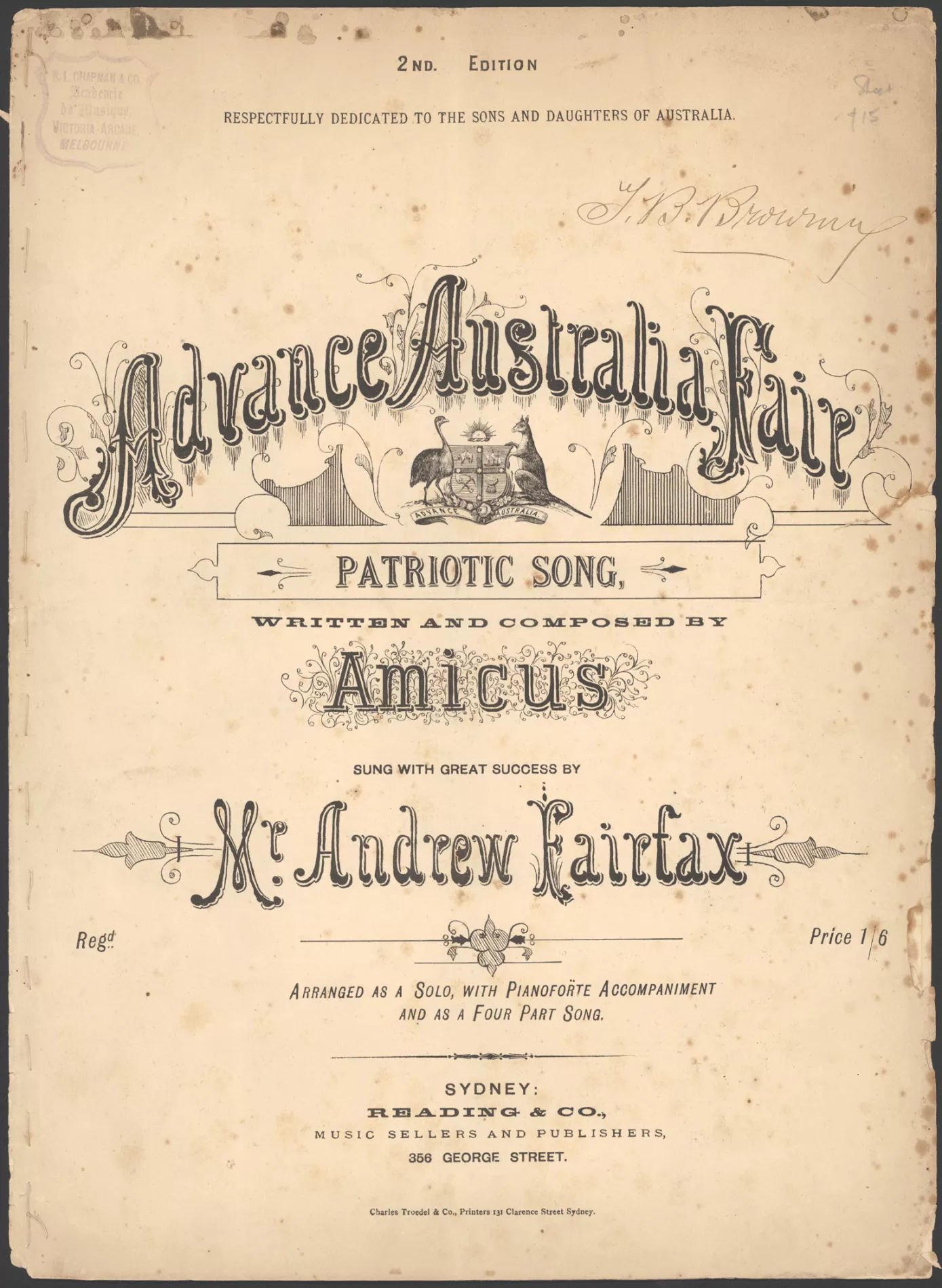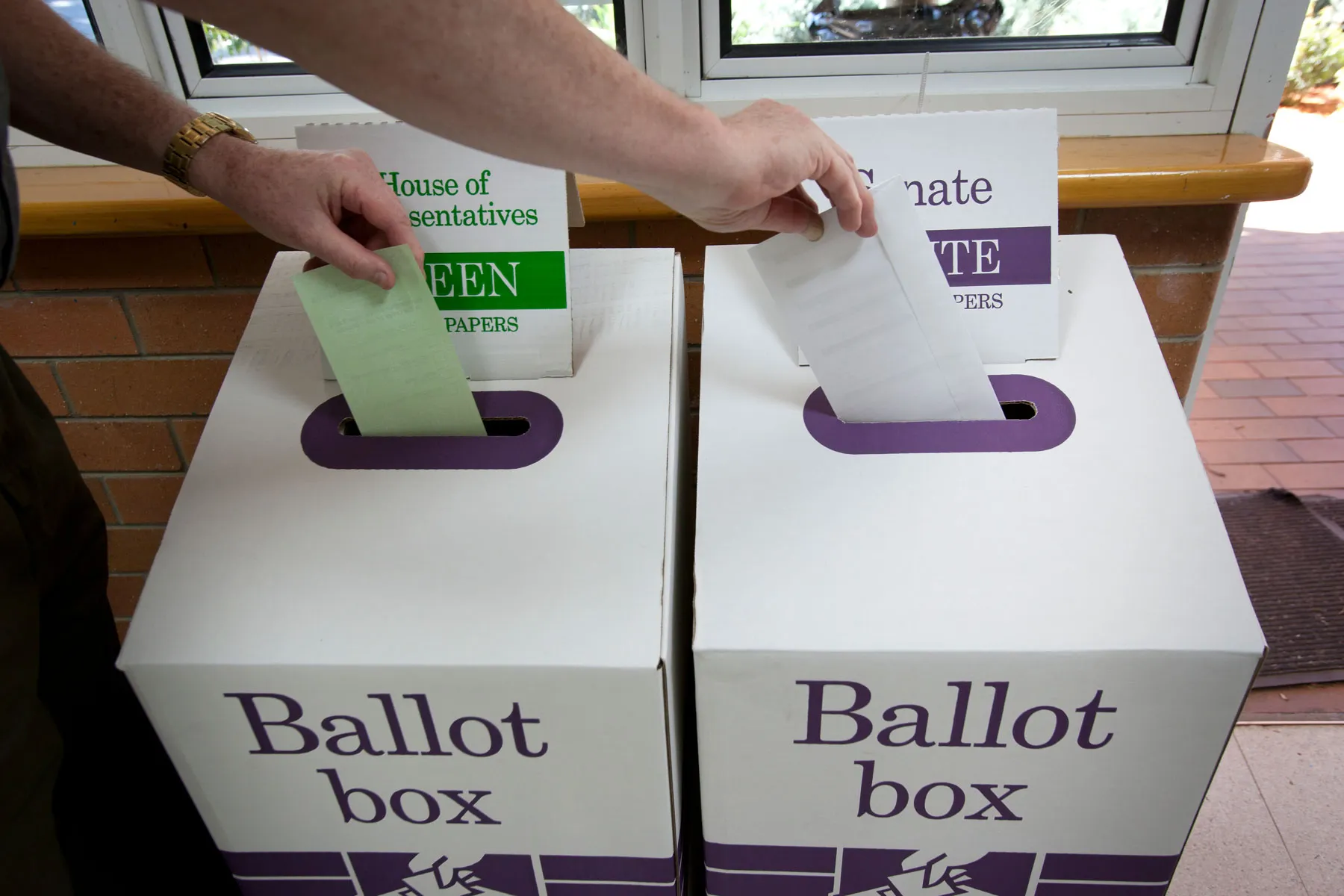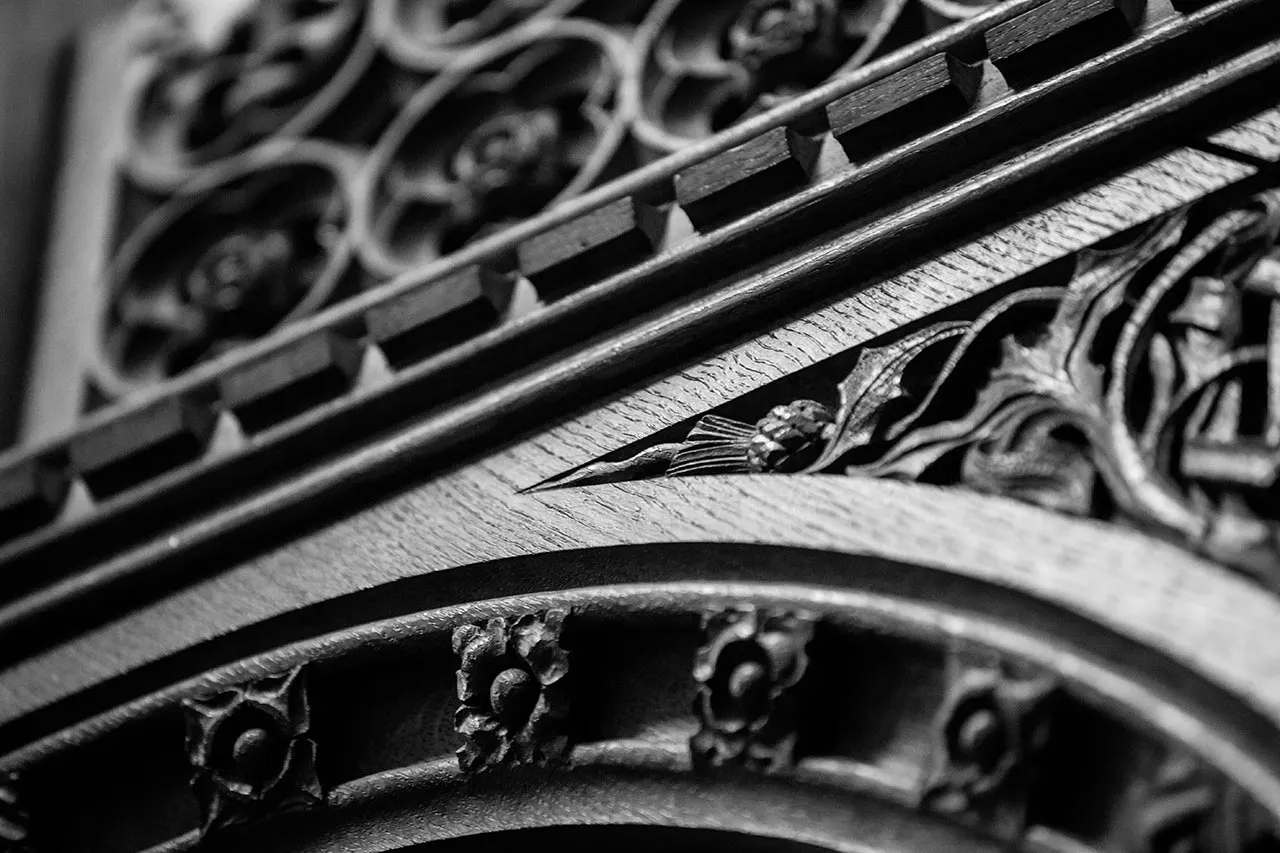When are elections held in Australia?
Your guide to how often voters go to the polls.
In Australia, voters go to the polls to vote for representation at each level of government – federal, state or territory, and local.
When was Australia's first parliamentary election?
The first parliamentary elections were held between 15 June and 3 July 1843 for the Legislative Council of New South Wales. The elections were a rowdy and violent affair using the British open voting system.
Soon afterwards, election reform saw the invention of the modern secret ballot method of voting, which Victoria adopted in 1856 to elect the first Victorian parliament. Notably, the modern secret ballot, or Australian ballot as it is also known, is the voting method used in Australia today.
When was the first federal election?
The first federal election for the inaugural Parliament of Australia was held on Friday 29 and Saturday 30 March 1901. 75 seats in the House of Representatives and 36 seats in the Senate were up for election.
Candidates travelled by train and horse-drawn buggies to deliver campaign speeches in hotels, halls and parks. The elections were run according to state laws, as no federal election legislation existed, and neither enrolment nor voting were compulsory.

The tally board with the results of the 1901 Australian federal election outside the Sydney Morning Herald building on the corner of Pitt and Hunter Streets, March 1901.
Photograph Mitchell Library, State Library of New South Wales
In the election, Edmund Barton – who on 31 December 1900 had been commissioned by Governor-General Lord Hopetoun as Australia's first prime minister – retained his prime ministership. He served in that position until 1903, when he resigned to become one of the founding judges of the High Court of Australia.
When are federal elections held in Australia?
The Commonwealth has a three-year term for the House of Representatives and a six-year term for the Senate. The term of the House of Representatives expires three years after it first meets, so federal election dates vary.
As there is no fixed election date and there is no rule about parliament serving the full term, in the past, prime ministers sometimes called elections earlier than the full three-year term, if they saw a political advantage in doing so. This is known as an 'early election'.
In the 1954 federal election, Sir Robert Menzies' government won a third term. Just 18 months later in December 1955, Australians again went to the polls after Menzies asked the governor-general to call an election. Ostensibly this was to bring the House and Senate elections back in line, but with the Labor Opposition in turmoil, it was a favourable time. Menzies' government was re-elected with a big majority – 75 seats to Labor's 49 (including the Northern Territory and Australian Capital Territory).
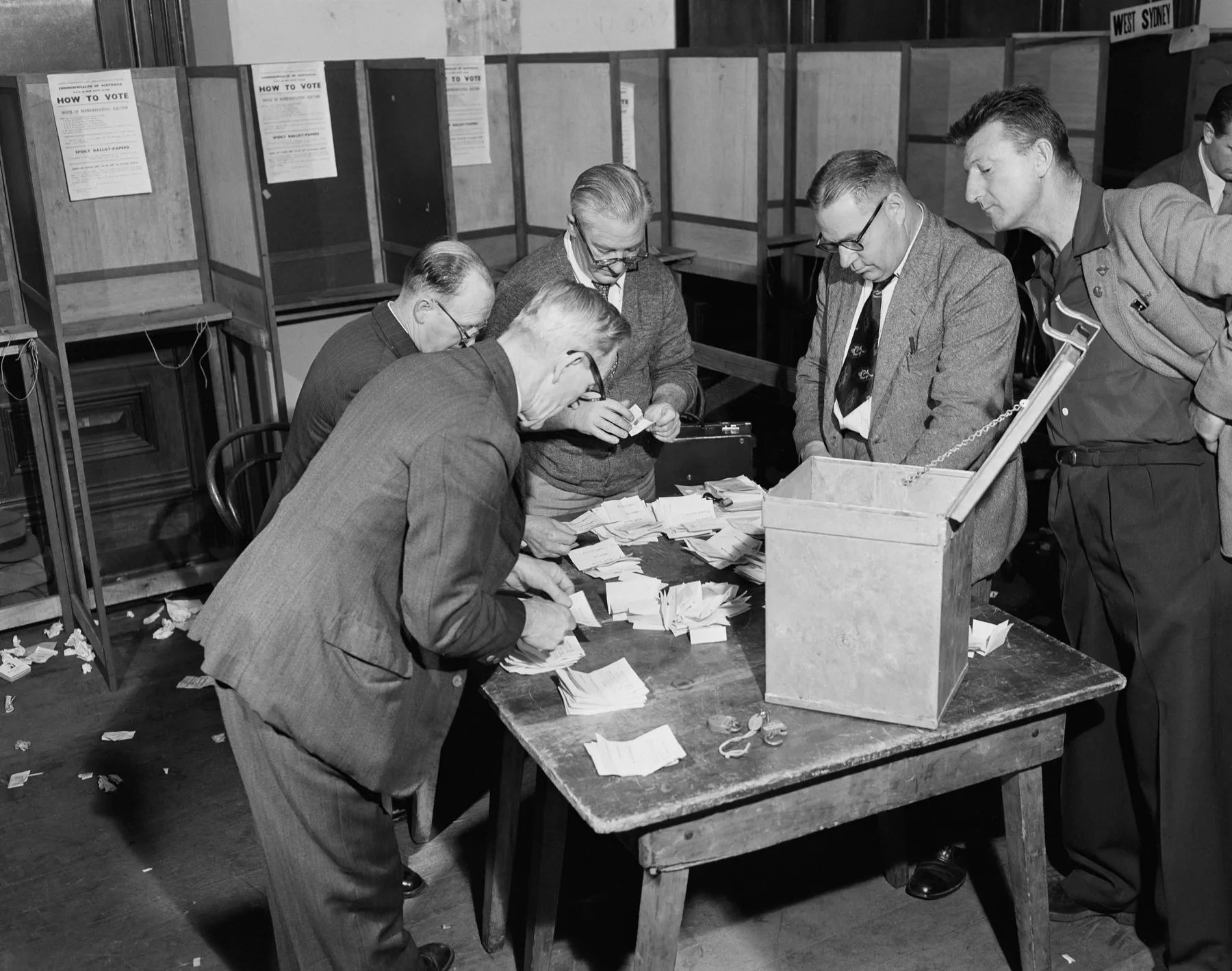
Votes being counted in the Sydney Tally Room during the federal election of 1954. Photograph by W Brindle, NAA: A1200, L17068

Sir Robert Menzies in the House of Representatives in 1957 after his government's win at the 1955 election. Photograph by J Fitzpatrick, NAA: A1200, L23717
More recently, prime ministers have been committed to parliament serving the full three-year term and not calling an election well before the term expires. This has been the case since 1998, with federal elections held every three years.
When are state and territory elections held?
All states and territories have terms of four years, with a fixed election date, so when you go to the polls depends on where you live. For instance, Queensland elections are held every four years on the last Saturday in October. In the Australian Capital Territory (ACT), elections are held on the third Saturday in October every four years for the Legislative Assembly, and because the ACT Legislative Assembly has responsibility for both territory and local decisions, the ACT doesn't have separate local elections.
When are local elections held?
Local elections for each state and territory except the ACT and Western Australia (WA) are generally held every four years. In Victoria, for example, local government elections are held on the fourth Saturday in October every four years. As noted, the ACT doesn't have local elections. In WA, local elections are held every two years on the third Saturday in October.
Can parliamentary term lengths be changed?
The federal parliament term lengths of three years for the House of Representatives and six years for the Senate are governed by the Constitution rather than legislation, making them difficult to change. Changes to the Constitution can only be made via a referendum.
Are fixed election dates common in other places?
Yes. Fixed election dates are quite common around the world. For example, the US presidential elections are held on the first Tuesday in November that falls after the first Monday in November every four years.
Who makes the rules for elections in Australia?
Federal elections in Australia are governed in accordance with the Australian Constitution and the Commonwealth Electoral Act 1918, and are run by the Australian Electoral Commission (AEC). Each state and territory has its own electoral laws for state and local elections, including the rules for when elections can be held.

